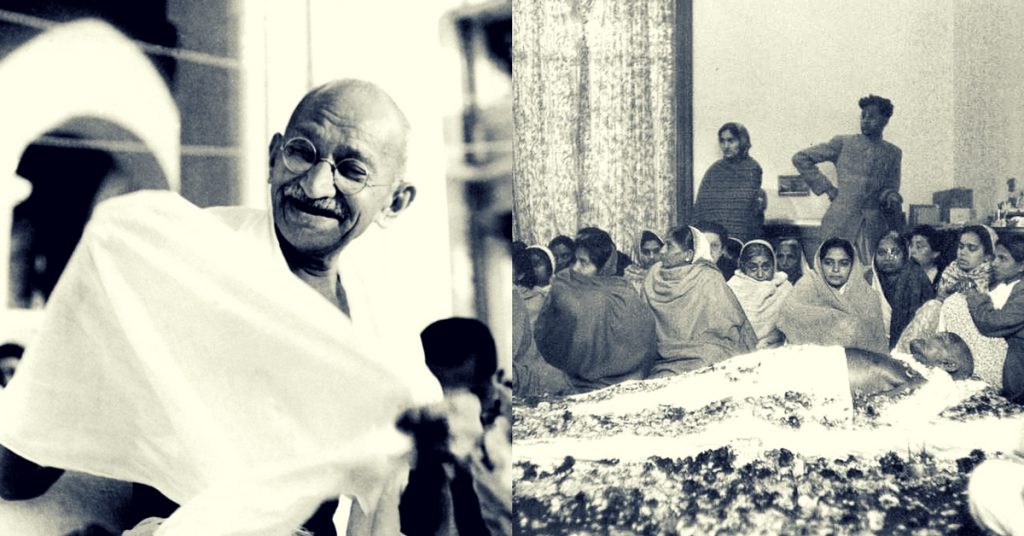New Delhi: Mohandas Karamchand Gandhi, fondly known as Mahatma Gandhi- the political and spiritual leader of the Indian independence movement was assassinated in New Delhi by a Hindu extremist Nathuram Godse on this day January 30.
Back to the history of Assassination Day:
Mahatma Gandhi reached Delhi September 9, 1947, from Calcutta. Gandhiji usually spent the whole day here talking to people, spinning his charkha and taking his midday rest.
January 30, 1948, dawned like any other day. No one knew what was going to happen in the evening. All went about the daily routine with no thought about what the day had in store for everyone. Godse considered Gandhi to have been too co-operative to Muslims during the Partition of India in the year 1947.
Gandhi had reached the top of the steps leading to the raised lawn behind Birla House where he had been conducting prayer meetings every evening. As Gandhi started to walk towards the stage, Godse also stepped out from the crowd next to Gandhi’s path, and fired three bullets into Gandhi’s chest and abdomen at point-blank range.
Gandhi fell to the ground. He was carried back to his room in Birla House from which a representative emerged sometime later to announce his death.
Godse was captured by the crowd and handed over to the police. The Gandhi murder trial opened in May 1948 in Delhi’s historic Red Fort, with Godse the main defendant, and his collaborator Narayan Apte and six others as the co-defendants. Godse and Apte were sentenced to death November 8, 1949. They were hanged in the Ambala jail November 15, 1949.
Nathuram Godse and his apologist:
-Gandhiji supported the idea of a separate State for Muslims. In a sense he was responsible for the separation of India and Pakistan.
-In spite of the Pakistani aggression in Kashmir, Gandhiji fasted to compel the government of India to release an amount of Rs. 55 crores due to Pakistan.
-The violence of Muslims was a result of Gandhiji’s policy of appeasement.
PNN
